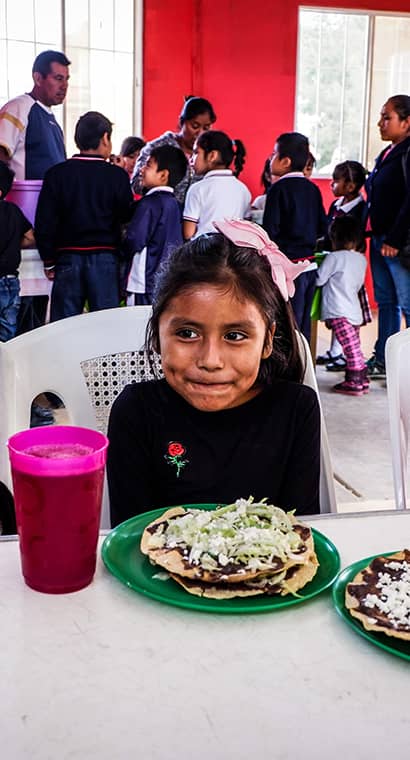General objective:
To improve the health and well-being of the people living in the eastern zone of Villa de Zaachila, Oaxaca, through a participatory and integral approach, focused on public and community health.

The project focuses on improving community health in the eastern zone of Villa de Zaachila in four areas: food and nutritional security and sovereignty; water, hygiene and sanitation; sexual and reproductive health and rights; and violence prevention.


To improve the health and well-being of the people living in the eastern zone of Villa de Zaachila, Oaxaca, through a participatory and integral approach, focused on public and community health.
Empowering Community Health in Oaxaca: promoting sustainability and health in the surrounding areas of the largest garbage dump in the state of Oaxaca
Between 2016-2019, SiKanda implemented the “Empowering for Nutrition” project in the eastern end of the municipality of Villa de Zaachila, around the largest garbage landfill in the state of Oaxaca. The project focused on promoting food security and sovereignty, specifically addressing food availability and access through school gardens, promoting nutrition education, advocacy for public policy, and fostering an active community on matters of nutrition.
SiKanda’s participatory approach led us, together with project participants, to a broader reflection on community health-disease processes. Likewise, the reality experienced by the people in this area of Zaachila constantly reminds us of the need to address common problems from a comprehensive and public health perspective, which can be strengthened through collaboration with other organizations and increase the project’s impact by promoting changes in different health-related aspects.
Therefore, SiKanda has adopted a broad perspective in this project that addresses 4 interrelated areas/problems affecting public and community health in the vicinity of the dump:
Food and nutrition security and sovereignty: SiKanda’s strategy to address availability and access problems, as well as nutrition problems, is to encourage local food production through school, family, and community gardens, and to promote nutrition education, skills, and infrastructure to access healthier food options.
Hygiene, Water and Sanitation (WASH): Linked to food utilization, the WASH assessment conducted by SiKanda in 2019 in 6 schools in the area, stressed that the main priority is to focus on clean water supply and storage, as schools have an ‘improved’ water source available (two schools have a well, four schools buy water through pipe services), but have little capacity to store it safely or ensure its availability for cleaning and cooking. The importance of hygiene and proper hand washing for disease prevention is also emphasized.
Investments are made in infrastructure such as tanks, rainwater collection systems, toilets, and septic tanks, among others.
Sexual and reproductive health and rights: SiKanda has documented how gender roles make accessing health services difficult, particularly those related to sexual and reproductive health. Violence in the area is also a factor related to a high incidence of teenage pregnancy. We promote a broad discussion on sexual and reproductive health and rights to favor access to services, awareness, and prevention of STIs, prevention of teenage pregnancy, gender equity, prevention of sexual violence, and access to contraceptives.
Violence prevention: A diagnosis of youth in the area, conducted by SiKanda in 2018, indicated the need to address violence prevention, one of the main concerns that adolescents and young people face within the community. SiKanda’s model is based on the ecological model that emphasizes the interaction between an individual and his or her environment for the prevention of violence. We understand violence as a public health problem that needs to be addressed by promoting a culture of peace and involving various actors, from authorities, other organizations, children, adolescents, youth, and adults.
We use cookies on this website to improve your user experience.
By clicking on any link on this website you are giving us your consent to install them in your browser.